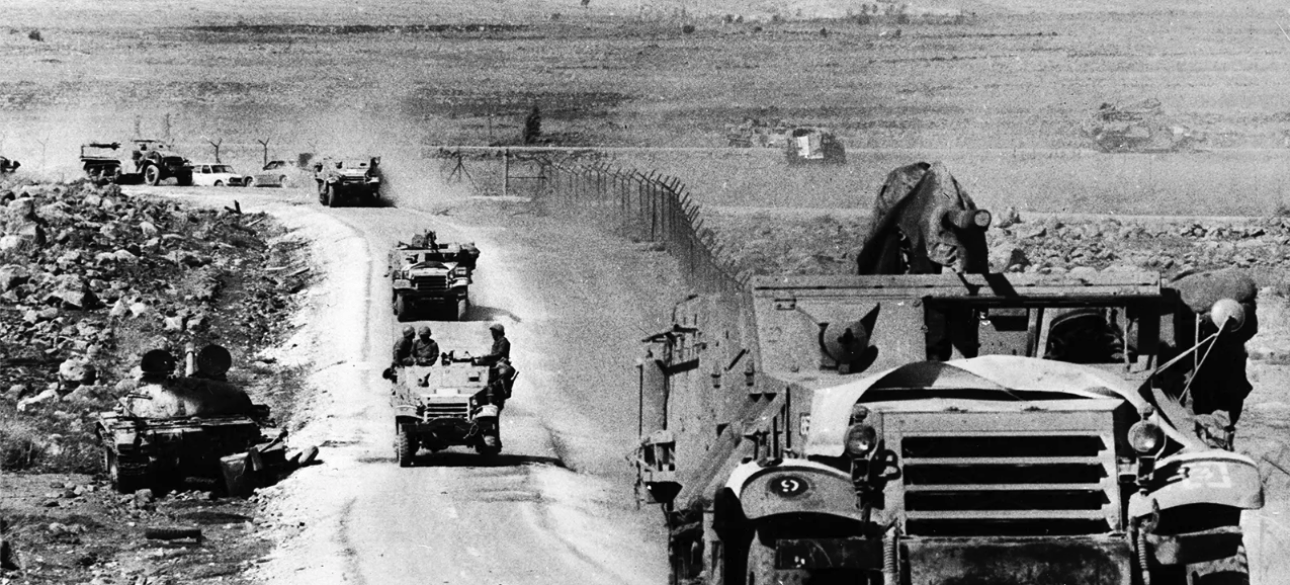
 By Victor Duda
By Victor Duda
In a conflict that brought so much suffering to Ukrainians, the shocking step of the Ukrainian armed forces began fighting the enemy in its territory gave energy to their troops and citizens. History sometimes raises lessons from the past, and the offensive near Kursk resembles an equally bold step in Israel during the war of the Judgment Day of 1973. In this war, Israel was at first inferior, being captured by a sudden invasion of both the north and from the south.
In the most sacred Jewish holiday, the Syrian tanks rolled from the Golan heights, and the coordinated attack of the Egyptians on the Sinai desert was caught by the Israelites by surprise. The Arabs have made significant progress in their campaign. Never during the many wars that were against Israel, Israel was not more dangerous. After a few days of terrible losses, Israel began to calm down and stopped the offensive. But for the turning point of the war it was necessary to do something bold.
A strategy was developed to cross the Suez Canal and fight in Egypt. Under the strong artillery fire, as well as under bombardment and shelling of Egyptian aircraft, General Ariel Sharon's troops crossed and began to invade Egypt. The Israelis noticed a gap between the Second and Third Egyptian armies and started implementing the latter isolation plan. When their plan began to work, the Egyptians and the international community hit panic.
The Israelis were able to destroy the Third Army because they cut off its ways of supply and approached Suez, referring to the heart of Egypt and its capital Cairo. In Russia, the spread of war to its territory reflects the first successes of the Israelites. Russia's sluggish response has been alarmed by the local population, of which more than 100,000 people are now forced by displaced persons. The Russians are in their element, beating on fortified defense lines in the south of Ukraine.
But they do not make dynamic changes in the battlefield, and to resist this new creative approach of highly motivated Ukrainian soldiers was difficult. Russia mobilizes troops and promised to return the success of the Ukrainian offensive for themselves, but in many respects Ukrainians have already succeeded. Moscow is located just 300 miles from this front line. Although few people think that the capital of Russia will truly be dangerous, its proximity to the place of fighting has the effect.
This may be enough to change the course of the war and move the struggle into the depths of Russia, as the Israelis did, crossing the Suez and threatening the heart of the Egyptian army and its major cities. The Israeli offensive in Egypt changed the course of war. Since Egypt was suddenly threatened by such a specific threat, two superpowers - the Soviet Union that supported the Egyptians and Americans who supported the Israelis - both became concerned that they could be drawn into war.
The potential destruction of the third Egyptian army and the threat of Cairo turned calls to a truce for noise. It is difficult to predict how it can be repeated in the Russian-Ukrainian conflict, but Ukraine has suggested that it could try to keep most of the conquered territory and negotiate from it in exchange for the fact that Russia will leave the Ukrainian territory captured by it.
Ukraine demonstrates signs of consolidation of its success in Kursk, and if it can repel Putin and his besieged troops, this strategy may be fruitful. Putin is in a different position than Anwar Sadat, the then leader of Egypt. Sadat and Syrian leader Hafz al-Assad most tried to restore the pride of the Arabs after their humiliating defeat in the six-day war of 1967.
As soon as the military impulse was stopped and, of course, when they encountered a real threat as a result of Israeli counter -offensive, peace made sense through negotiations. They spilled the blood of the Israelites and shook the Israeli arrogance, which developed after their success in the previous wars. But for Putin, such peace can be his collapse.
If he is pushed to the negotiation table with a successful Ukrainian offensive with the capture of the Russian territory, which Moscow will not be able to return, it will destroy the halo of Putin's invincibility - he covered the fear that strangled his critics (although Putin's image was already injured because of his long campaign against Ukraine). The Russians are forced to select soldiers from about 300,000 recruits, but for Putin it is also not the best strategy.
They were poorly trained, and they promised that they would not be thrown into the flame of the Ukrainian conflict. There is a report that mothers were angry with the fact that their sons were thrown into battle and felt betrayed. At one time, such offended mothers played a role in the fact that the Soviet Union got out of Afghan gut, which led to the fall of this empire. War is often associated with risk measurement.
If Russia fails to stop the offensive of Ukrainians or displace them from the territory they hold, will Putin use his threat to use tactical nuclear weapons? He may be tempted to think about it, although it is most likely to split in his vital union with China.
Putin's anger about the impotence of his country can lead to an increase in the number of attacks on the Ukrainian civilian population and infrastructure, although President of Ukraine Volodymyr Zelenskyy stated that one of the reasons for the invasion was the creation of a buffer zone and a decrease in Russia's ability to attack across the border.










All rights reserved IN-Ukraine.info - 2022